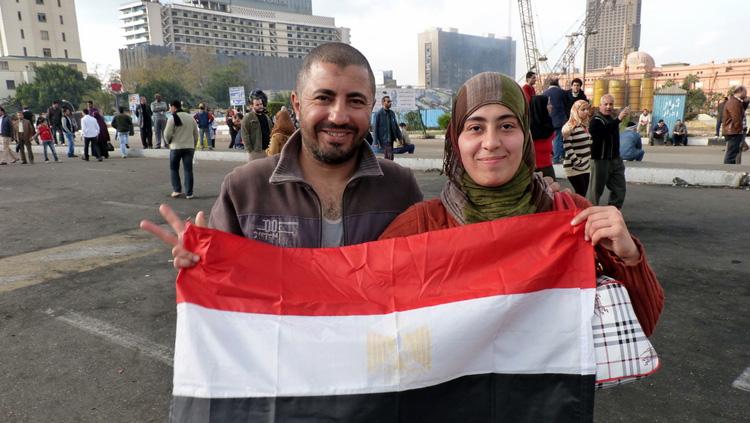Unease with reform pace in Egypt
By Ben Gilbert
28 year old Ali Sohee, an Egyptian actor, walked through Tahrir square earlier this month on his way to work. He said he saw military police detain some protestors who had set up tents, and recognized some of his friends among the detainees. He got on the phone to a lawyer. That’s when the military police detained him, too.
“The soldiers took me to the Egyptian museum, and inside and I saw a lot of people who were beat up,” Sohee said.
Then, Sohee said, the soldiers started to beat him.
“I fell on the ground, I was paralyzed, I couldn’t breathe, and they began to beat me more and electric shock in sensitive places in my body,” he said.
Sohee was taken to a military prison with other protesters. He said there, soldiers produced Molotov cocktails and knives they said belonged to the protestors. Sohee said the soldiers videotaped the scene, and put it on state television.
A military prosecutor came. Sohee and the others were accused of being thugs, and some were convicted of crimes. He said he was let go because he’s an actor and has connections. His right arm is still severely bruised a week later.
“They didn’t arrest thugs, they arrested good people,” Sohee said. “People who sell tea and flags and sell things in the square. And they said they are thugs. The criminals are the soldiers who made the arrests, not us.”
Beatings and worse
Egyptian activists and human rights advocates say that day, March 9th, was a turning point. Egypt’s military detained and beat dozens of people. An Amnesty International report released this week said it was even worse for women. They were “beaten, given electric shocks, and subjected to strip searches that were photographed by male soldiers. And there’s more: Women say a male doctor tried to determine whether they were virgins. Some were accuse of being prostitutes.
“The biggest human rights concern right now in Egypt is that the army is trying to appear tough to deter crime and restore public safety,” said Hossam Bahgat who is with the Egyptian Initiative for Personal Rights.
Bahgat said torture and arbitrary detentions are not the only problem right now. He said hundreds, if not thousands of civilians, have been sentenced to long prison terms in military courts.
“They are given extremely short and summary trials without access to adequate legal defense and sometimes without even knowing the charges they are facing and then sentenced to heavy jail terms that are then announced on state owned media, in an attempt purportedly to deter crime and restore public safety,” he said.
Untouchable army
According to Bahgat, thousands of people have been dealt with this way. And he said most of them get arrested, charged tried and sentenced and moved to prison within six or seven hours at times.
Few, if any Egyptians beyond those directly affected by the detentions know about the torture and military court trials. Most Egyptian newspapers and TV outlets don’t report it.
Elijah Zarwan of the International Crisis Group said that because the Army is the most respected institution in Egypt right now, complaints about army abuses seem to fall on deaf ears.
“I think for a lot of people there’s a real desire to have at least one functioning state institution, some anchor of stability in the country,” Zarwan said. “And so whatever respect for army they had before the revolution, that’s only been reinforced by this craving for some kind of stability and continuity at time of great uncertainty.”
Rights activists and others have said they understand that the army has been thrust into governing a country of 80 million people at one of the most difficult periods in recent Egyptian history. And it’s not easy. But they say that doesn’t excuse their actions. The Army, for their part, has denied any abuses are taking place.
Our coverage reaches millions each week, but only a small fraction of listeners contribute to sustain our program. We still need 224 more people to donate $100 or $10/monthly to unlock our $67,000 match. Will you help us get there today?
